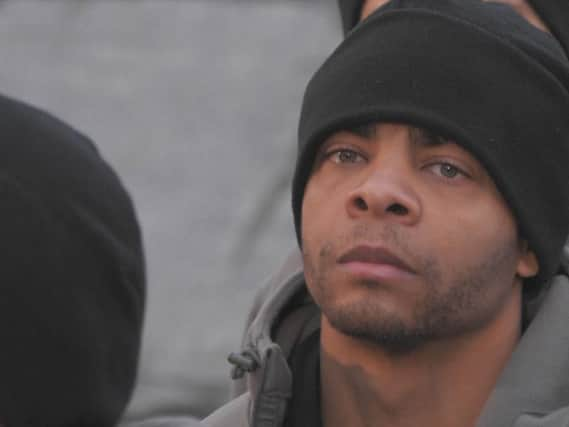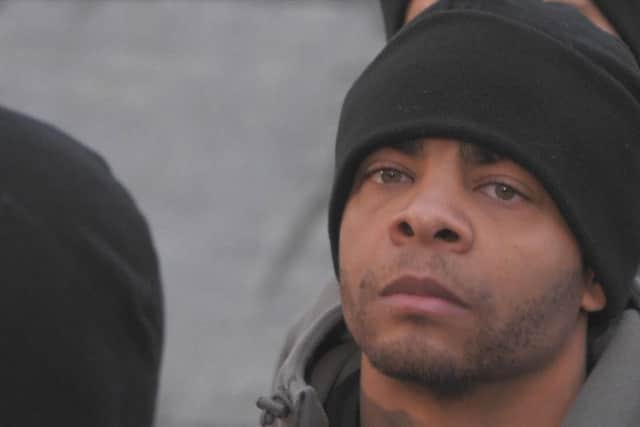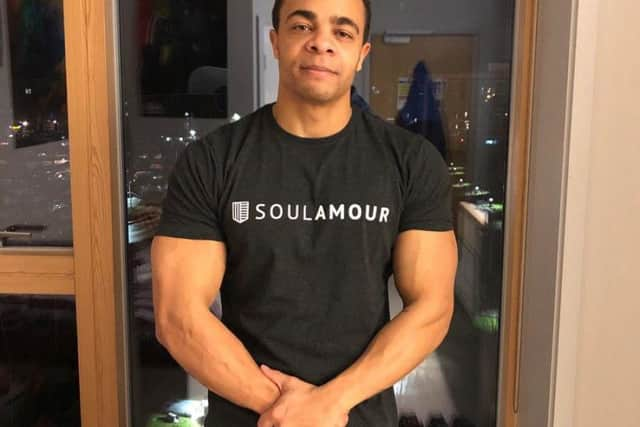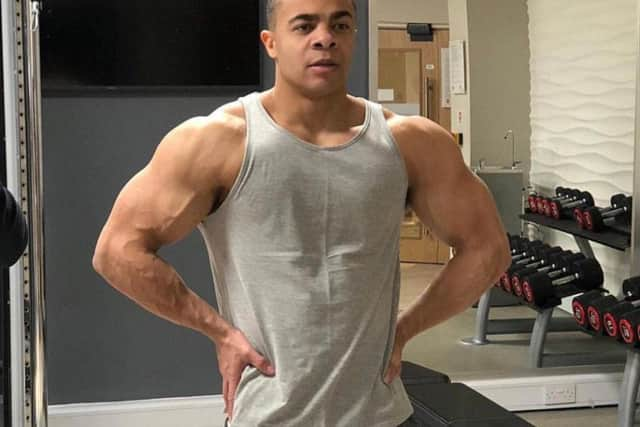Nathaniel from SAS: He Who Dares Wins opens up about his mental health issues ahead of motivational talk at UCLan


But after an engaging sports psychology lecture, the 28-year-old decided to test his limits and enter the gruelling reality TV challenge which aired on Channel 4 earlier this month.He is now using his experiences to educate others by giving motivational talks across the country.He will be giving an informal talk at UCLan on March 7.
It was whilst at Hull University, Nathaniel realised how much his life had been affected through a series of events and undiagnosed personality and mental health disorders.And a year later, he moved to Edge Hill University and applied to enter SAS: He Who Dares Wins to strengthen his mind, where he admits he struggled when it came to being open about his mental health.
Advertisement
Hide AdAdvertisement
Hide AdNathaniel, who grew up in Nottingham, reveals: “From the age of nine months I was passed around a bit. I was the middle child, with an older sister and two younger sisters. My sisters went to live with their grandparents, as we had different dads. “I used to live with my grandad from the age of five to nine and I watched him deteriorate until he passed away. That’s when it all started.“I was going through my final year of primary school and I was starting high school. I didn’t have that type of role model in my life at the time and I went into foster care.


“I was a bit of a rebel but I didn’t think I was that bad. I was just misunderstood. I didn’t fit in, but I didn’t know I had Asperger’s and ADHD until I was 19.“I struggle with normal stuff, like eye contact and I don’t understand people, as I don’t get jokes and I take everything literally.“I think it was brushed under the carpet, which I don’t think was very fair on me. I had to struggle through my life with things that I could have had help for if I was at school.
“When I left school, my teacher said I would not mount to anything. I went to college but I could not fit in, so I left and went to another college.“I got a job at McDonalds and that’s when I first realised something was not right with me,“I had OCD and I started doing weird things. I remember that when I was with my grandad I would not do anything in threes and that was how I would protect my mum and sisters.
“By the time I was 18, it was getting worse. I liked things clean and I thought that I smelt and nobody liked me, so I would spray a whole bottle of perfume on myself.“I struggled with depression and went from getting the highest results in college to not finishing. I had a music scholarship, but I lost that.“As I was 18, my foster carers could no longer afford to keep me so I was homeless and ended up staying in a hostel in a bad area.
Advertisement
Hide AdAdvertisement
Hide Ad“I eventually moved to Essex and got my own place. I went on holiday and when I came back, my mum and sisters were involved in a house explosion.“My sisters were fine, but my mum lost her eyesight and leg, so that was more stuff to cope with. I struggled for a few years after that.


“I turned my life around when I was 23. I thought there had to be more to life than this.“I watched a motivational video about having goals and dreams, so I decided to pick up my music again. I started a YouTube channel which went well.“I got to perform and I got paid for shows. I was getting my music played on the BBC and I was loving my music.“At the age of 26 I enrolled at Hull University to do sports science. We covered sports psychology and the lecturer talked about anxiety, which I could really relate to. I started talking about my OCD and I started to feel better.”
With Nathaniel’s new-found sense of self confidence, he wanted to push himself and applied for SAS: He Who Dares Wins.He says: “I am fit, but I wanted to build my mental health. I needed to do something to push me mentally to another place so I applied for the programme. “I got the form but didn’t think I would pass the fitness test as there were so many sit ups.“But I decided not to make excuses and I would turn up and see what happens - and I passed it.”
Nathaniel was on the show for nine days before he left voluntarily due to mental health issues.He recalls: “I climbed a mountain, even though I was scared of heights and I abseiled forward.“On my first day I had to do a water challenge where we fully submerged ourselves in cold water. It was really hard.
Advertisement
Hide AdAdvertisement
Hide Ad“I also had to fight a female contestant, Louise, in one of the challenges, which I would almost say was the worst thing that happened, but really the worst thing was about being open about my mental health. My mum didn’t know how much I had struggled at that point. I was a bit antisocial and I didn’t speak to many people. It was all too much and that’s why I left.“The show shined a light on my troubles.“But I think I am a different person now. I am not perfect, I have bad anxiety and low moods, but I am a lot more confident.”


Since the show has aired, more people have spoken to Nathaniel about his challenges, which is spurring him even more to support others.He has now set up another YouTube channel Aspire to Inspire where he discusses his battles and aims to motivate people with similar demons.He hopes speaking to students at UCLan about what he has achieved, will help others who are struggling.
He says: “I have become a lot more open about my health and since the show, I have been encouraging people to share their insecurities.“The one thing that affects people is suffering in silence. It is a silent killer, that kills many people.“I am trying to get to a good place so people can see what it feels like to be under pressure and be in a dark place.“Seeing people suffering gives me more direction and I want to continue being a motivational speaker.”